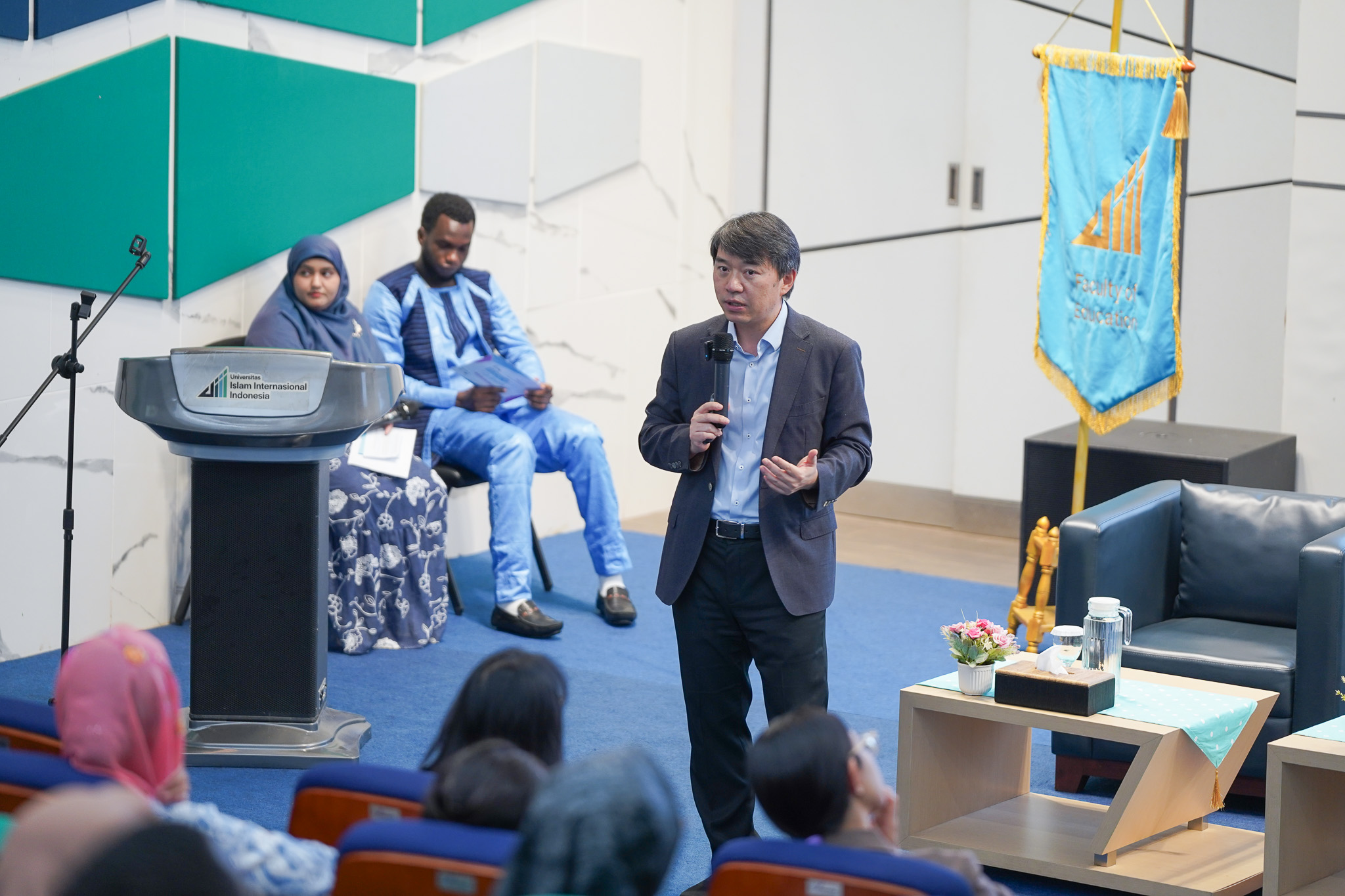More From News
UIII Builds a Bridge to Costa Rica
February 26, 2026
UIII Strengthens Its Academic Resources with Read Japan Project
February 25, 2026
May 14, 2025
Contributor: Supriyono | Editor: Dadi Darmadi | Photo: Achmad Jatnika

At the 4th Annual Conference hosted by UIII Faculty of Education, Professor Yan Zi of the Department of Curriculum and Instruction at The Education University of Hong Kong delivered a keynote that challenged the status quo of classroom assessment. His central argument: the future of effective learning in a digital age lies in synergising teacher-directed and student-initiated formative assessments, especially as education embraces the capabilities—and caveats—of generative AI.
In a presentation titled “Synergising Teacher-directed and Student-initiated Assessment in the Digital Learning Environment,” Professor Yan offered a research-grounded framework for what he called a “meaningful assessment ecology.” This ecology, he explained, must blend two major forces, namely teacher-driven assessment-for-learning and student-led assessment-as-learning.
Traditionally, formative assessment has relied heavily on teacher direction where teachers monitor student learning and adjust teaching strategies accordingly. This model has value, said Professor Yan, but it alone cannot unlock the full potential of student learning.
To complement this, Professor Yan spotlighted student-initiated assessment—or assessment-as-learning—where learners actively engage in self-assessment and metacognitive reflection. Drawing from his work developing the Self-assessment Practices Scale (SaPS), he demonstrated how this approach empowers students to take ownership of their learning, fosters self-regulated learning (SRL), and enhances academic outcomes.
Crucial for student-initiated assessment, Professor Yan highlighted the interplay between feedback literacy and self-assessment. He argued that these are not separate domains; feedback literacy fuels effective self-assessment, and vice versa. He elaborated that both processes centered on active student involvement and co-regulation, challenging conventional views of feedback as a one-way street from teacher to student.
In regards to feedback, Professor Yan then elaborated the role of generative AI—particularly tools like ChatGPT—in reshaping feedback and assessment. Generative AI, he explained, has the potential to make feedback more timely, personalized, and accessible. It democratizes assessment by shifting power to the learner.
However, he offered several cautionary notes, saying that students may struggle with using appropriate prompts, evaluating AI-generated responses, or may become overly dependent on AI outputs without critical reflection. “ChatGPT may be a game-changer,” he said, “but it still depends on the player.”
A recent study cited by Professor Yan revealed that while students showed cognitive engagement with ChatGPT, their behavioral engagement was often superficial. Emotional resistance was low, but trust levels varied. He warned that without proper cultivation of feedback literacy, students may not reap the full benefits of AI-enhanced learning environments.
Hence, Professor Yan called for a “bottom-up assessment reform,” advocating for an assessment culture that is not only methodologically diverse—encompassing theoretical, quantitative, and qualitative approaches—but also deeply grounded in stakeholder engagement, including students, teachers, and parents.
Professor Yan’s lecture marked a significant intellectual moment in the ongoing dialogue on education transformation at UIII. As digital tools become increasingly embedded in pedagogy, his message serves as both a roadmap and a reminder: technology should enhance, not replace, the human dimensions of teaching and learning.
Universitas Islam Internasional Indonesia